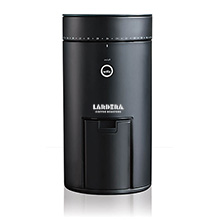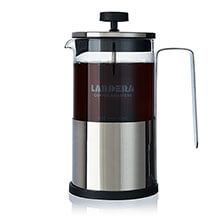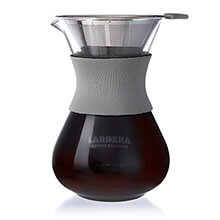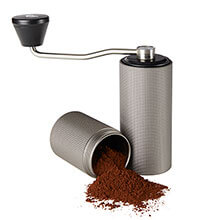About Coffee Beans: Anaerobic, Honey, Washed, and Natural
April 03, 2024

Anaerobic Processing: Unlocking Bold Flavors
Anaerobic processing is a relatively newer method that involves fermenting coffee beans in an oxygen-free environment. This controlled fermentation process typically takes place in sealed tanks, allowing the beans to ferment in their own juices. The absence of oxygen encourages unique chemical reactions within the beans, resulting in intense flavors.One of the defining characteristics of anaerobically processed coffee is its vibrant acidity and complex flavor profile. You can expect bold fruity notes, reminiscent of berries, tropical fruits, and sometimes even wine-like undertones. These flavors are often accompanied by a smooth, velvety mouthfeel, making anaerobic coffees a delight for adventurous palates.

Brewing Tip
Anaerobic coffees tend to benefit from a slightly coarser grind and lower brewing temperatures to preserve their delicate flavors. Experiment with pour-over or immersion methods to fully appreciate the nuances of these unique beans.Honey Process: Sweetness in Every Sip
Honey processing, also known as pulped natural processing, strikes a balance between the dryness of washed processing and the fruitiness of natural processing. In this method, the outer skin of the coffee cherry is removed, leaving some of the mucilage intact during drying. The term "honey" refers to the sticky, honey-like layer of mucilage that clings to the beans.Honey-processed coffees are celebrated for their inherent sweetness and nuanced flavor profile. Depending on the level of mucilage left on the beans, you may encounter a spectrum of flavors ranging from gentle floral notes to caramelized sugars and stone fruit undertones. This processing method often results in a medium body with a lingering sweetness that lingers on the palate.

Brewing Tip
Honey-processed coffees tend to benefit from medium grind sizes and brewing methods that highlight their sweetness, such as a Chemex or a French press. Adjust your brewing parameters to accentuate the desired flavor characteristics.Washed Process: Clean and Crisp Profiles
Washed processing, also known as wet processing, is one of the most widely used methods in the coffee industry. In this method, the coffee cherries are pulped to remove the outer skin before undergoing fermentation to remove the remaining mucilage. The beans are then washed and dried, resulting in a clean and crisp flavor profile.Washed coffees are prized for their bright acidity and clarity of flavors. Expect clean, well-defined notes that showcase the coffee's inherent characteristics without interference from fermentation byproducts. Common flavor profiles include citrus, floral, and tea-like qualities, with a refreshing acidity that brightens the cup.

Brewing Tip
Washed coffees shine when brewed using methods that highlight their acidity and clarity, such as pour-over. Opt for a finer grind size and slightly higher brewing temperatures to extract the nuanced flavors effectively.Natural Process: Embracing Earthy Richness
Natural processing, also known as dry processing, is perhaps the oldest method of coffee production. In this method, the coffee cherries are dried whole, allowing the beans to ferment inside the fruit. This extended contact with the fruit imparts a distinctive fruity and often earthy flavor profile to the beans.Natural-processed coffees are renowned for their bold and robust flavors. You can expect a rich, full-bodied cup with pronounced fruity notes, ranging from berries and stone fruits to exotic flavors like pineapple and mango. The fermentation process adds depth and complexity, resulting in a coffee that is both comforting and adventurous.

Brewing Tip
Natural-processed coffees benefit from a slightly coarser grind size and brewing methods that enhance their body and richness, such as a French press. Adjust your brewing parameters to balance the intense flavors and ensure a well-extracted cup.All in all, the diverse coffee production methods of anaerobic, honey, washed, and natural offer a spectrum of flavors and experiences for coffee enthusiasts to explore. Whether you prefer the boldness of anaerobic processing, the sweetness of honey processing, the clarity of washed processing, or the richness of natural processing, there's a coffee for every palate. Experiment with different brewing methods to unlock the full potential of these unique beans and embark on a flavorful journey through the world of coffee.
